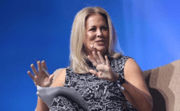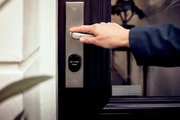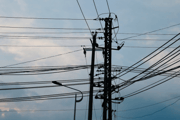Coles accused of sneaky marketing trick - see what people are so angry about
By
- Replies 28
Businesses are struggling to stay afloat in this highly competitive market, especially with the rising costs of living.
That’s why it is no secret that many establishments do whatever they can to increase their profits.
But while their usual methods are above board, what happened recently in a Coles store has sparked major outrage.
It all started when a shopper stopped by the fresh section of a Coles store in search of bananas.
As the customer browsed through the selection, they noticed the regular-sized bananas sitting alongside 'Coles Kids Bananas' - but the price tags on both items were the same, displaying ‘$4.50’.
At first glance, everything appears normal. However, upon closer inspection, the shopper noticed the small print on the tag that revealed the real price difference — the regular-sized bananas were priced at $4.50 per kilogram, while the 'Kids Bananas' were only available in a 750-gram bunch.

After performing a quick calculation in her head, the woman concluded that the 'Kids Bananas' were sold for a higher price per kilogram than their larger counterparts.
'Be aware of marketing tricks like this,' the shopper said as she took a picture of the display and shared it on Facebook to spread the word.
Many consumers were taken aback by the price difference and took to social media to express their disbelief.
'You are getting less bananas, so surely it should cost less than the bigger banana…' one user wrote.
Another joked: ‘That's bananas…'
'So the smaller item is more expensive; it's definitely not a trick, right? Got it…' said a third.
However, not everyone believed it to be ‘misleading’ because, despite being written in a smaller font, the actual price and weight of the bunch were readily visible on the tag.
One person argued: 'It's pretty obvious and clearly stated.’
'Some people are happy to pay the extra for the small size banana; I don't see how that's a “trick”.’
Others even said they searched for the smaller bananas before they spotted them at the rival store.
One comment read: ‘You pay for the convenience of smaller bananas to go in lunchboxes.’
A Coles representative confirmed that the 'Kids Pack Bananas' were specifically made for the store.
'We sell specially marked Coles Kids Pack Bananas for a healthy snack packed full of nutrients but which still fits snugly in any child's lunchbox,' the spokesperson said.

While it may be up to the customer to decide whether they are happy to pay the extra money for the product, this banana pricing has illustrated that seemingly deceptive pricing strategies (whether they are legal or not) can be incredibly detrimental to a company's relationship with its customer base - as people may feel misled and take their business elsewhere instead.
By strategically marking down some items and jacking up the prices of others, supermarkets can foster a sense of distrust amongst their customers, as shoppers can feel like they are being taken advantage of.
This could have long-term implications on consumer loyalty, as shoppers may choose to buy their groceries from elsewhere after having such a negative experience.
Companies that wish to maintain the loyalty of their customer base must be aware of how their pricing strategies can contribute to this, and ensure that they are not grossly deceiving their customers.
It is also important to remember how price perception comes into play here. People may be willing to pay a bit more for convenience - such as the smaller 'Kids Pack Bananas' - if they feel they are getting a good deal.
But when shoppers perceive the price of an item as unfair, they will think twice before returning to the company in question. Thus, for companies like Coles, it is important to consider how a fair price can maintain the customer loyalty that is so important for a business’s survival.
Members, this is a good reminder to always read the small print before we buy anything at our local stores. It always pays to be smart with your shopping, so we recommend checking out this article for more tips on how you can make the most out of your shopping trips.
Have you ever noticed a sneaky marketing trick like this in your local store before? How do you make sure you always get good value for money? Let us know in the comments!
That’s why it is no secret that many establishments do whatever they can to increase their profits.
But while their usual methods are above board, what happened recently in a Coles store has sparked major outrage.
It all started when a shopper stopped by the fresh section of a Coles store in search of bananas.
As the customer browsed through the selection, they noticed the regular-sized bananas sitting alongside 'Coles Kids Bananas' - but the price tags on both items were the same, displaying ‘$4.50’.
At first glance, everything appears normal. However, upon closer inspection, the shopper noticed the small print on the tag that revealed the real price difference — the regular-sized bananas were priced at $4.50 per kilogram, while the 'Kids Bananas' were only available in a 750-gram bunch.

A Coles shopper claimed that there’s a hidden ‘price difference’ between the two sets of bananas. Credit: Facebook.
After performing a quick calculation in her head, the woman concluded that the 'Kids Bananas' were sold for a higher price per kilogram than their larger counterparts.
'Be aware of marketing tricks like this,' the shopper said as she took a picture of the display and shared it on Facebook to spread the word.
Many consumers were taken aback by the price difference and took to social media to express their disbelief.
'You are getting less bananas, so surely it should cost less than the bigger banana…' one user wrote.
Another joked: ‘That's bananas…'
'So the smaller item is more expensive; it's definitely not a trick, right? Got it…' said a third.
However, not everyone believed it to be ‘misleading’ because, despite being written in a smaller font, the actual price and weight of the bunch were readily visible on the tag.
One person argued: 'It's pretty obvious and clearly stated.’
'Some people are happy to pay the extra for the small size banana; I don't see how that's a “trick”.’
Others even said they searched for the smaller bananas before they spotted them at the rival store.
One comment read: ‘You pay for the convenience of smaller bananas to go in lunchboxes.’
A Coles representative confirmed that the 'Kids Pack Bananas' were specifically made for the store.
'We sell specially marked Coles Kids Pack Bananas for a healthy snack packed full of nutrients but which still fits snugly in any child's lunchbox,' the spokesperson said.
Key Takeaways
- Coles has been accused of using a sneaky marketing trick to advertise the price of its bananas.
- The regular-sized and 'Coles Kids Bananas' price tags showed the same value of $4.50, but revealed a price difference between the two upon closer inspection.
- Social media users were quick to express their shock at the price difference.
- A Coles spokesperson said the 'Kids Pack Bananas' were a specialist product sold for the convenience of smaller bananas for lunch boxes.
While it may be up to the customer to decide whether they are happy to pay the extra money for the product, this banana pricing has illustrated that seemingly deceptive pricing strategies (whether they are legal or not) can be incredibly detrimental to a company's relationship with its customer base - as people may feel misled and take their business elsewhere instead.
By strategically marking down some items and jacking up the prices of others, supermarkets can foster a sense of distrust amongst their customers, as shoppers can feel like they are being taken advantage of.
This could have long-term implications on consumer loyalty, as shoppers may choose to buy their groceries from elsewhere after having such a negative experience.
Companies that wish to maintain the loyalty of their customer base must be aware of how their pricing strategies can contribute to this, and ensure that they are not grossly deceiving their customers.
It is also important to remember how price perception comes into play here. People may be willing to pay a bit more for convenience - such as the smaller 'Kids Pack Bananas' - if they feel they are getting a good deal.
But when shoppers perceive the price of an item as unfair, they will think twice before returning to the company in question. Thus, for companies like Coles, it is important to consider how a fair price can maintain the customer loyalty that is so important for a business’s survival.
Members, this is a good reminder to always read the small print before we buy anything at our local stores. It always pays to be smart with your shopping, so we recommend checking out this article for more tips on how you can make the most out of your shopping trips.
Have you ever noticed a sneaky marketing trick like this in your local store before? How do you make sure you always get good value for money? Let us know in the comments!







